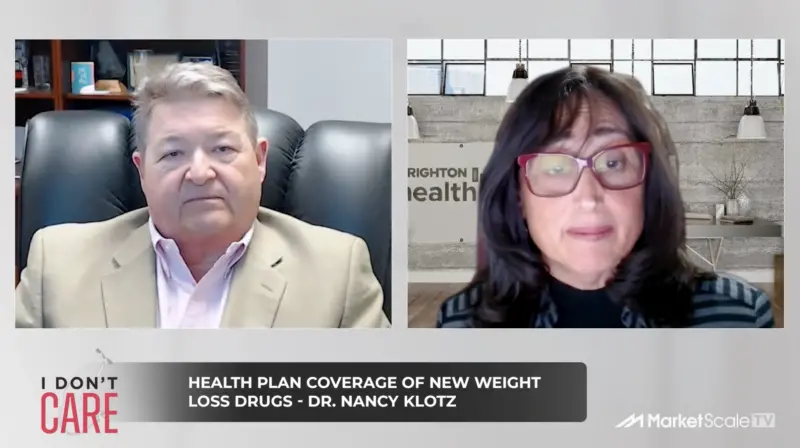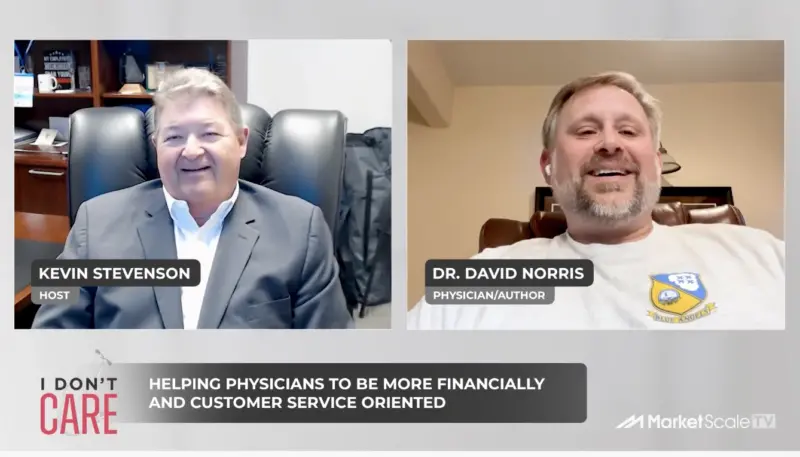How Hospitals Can Conserve Energy and Reduce Strain on the Power Grid
As temperatures nationwide rise with the peak of summer heat hitting various states, the increase in energy use is causing strain on power grids.
Of the most vulnerable states is Texas, as it recently faced a major threat when unexpected cold temperatures resulted in unusual and heightened energy use in February 2021. The demand caused a failure and outages, per the Texas Tribune. Since then, the power grid was left in a state of vulnerability, and another demand is on the rise.
Kevin Stevenson of the podcast “I Don’t Care,” talked about the role Texan hospitals, and medical facilities can play in alleviating this critical energy demand situation. He said the effect of current hot temperatures is “putting a lot of pressure on the grid.”
Last week, the corporation that manages Texas’s power grid said there were record-breaking demands for energy and usage for July.
But Stevenson added that there are specific tips hospitals should utilize to help reduce the strain on the state’s power grid.
“There’s a lot of things we can do with that — we can make sure that we’re doing simple things like keeping our lights off when appropriate,” said Stevenson.
He stated that a lot of hospitals are already doing their part in energy conservation as many of them have motion sensor lighting, which shuts off with no movement in any room after a considerable time. Not only does this factor in energy–saving, but it also helps hospitals cut back on energy costs, according to PG&E.
But Stevenson even explained that some other factors can present obstacles to hospitals meeting energy-saving goals. Such as usual maintenance and environment. Hospitals and medical facilities require tools and mechanisms that ensure an environment not only safe for its patients and staff but also for medical equipment. Hospitals need a certain temperature to safely function.
“There’s a lot of challenges that come with implementing these kinds of energy-conserving practices. So it’s things like certain parts of the hospital have to be kept at certain temperatures, have to keep their humidity levels where equipment won’t be damaged, and where frankly infection rates won’t go through the roof,” said Stevenson.
According to PrimeX, there are both cooler and warmer temperatures that hospitals often have to maintain in different areas of their facility, and there’s a minimum temperature allowable for each. These temperatures play a role in the general comfort within the hospital, for its offices, and of course, operating and testing rooms.
In addition to temperatures, Stevenson stated that round-the-clock lighting is standard for every hospital, and maintaining that comes with being considerate to all lighting needs even with the desire to conserve energy.
“We also need to make sure that our patients, visitors, and associates are safe, so we have to have appropriate lighting both internally and certainly externally at night,” stated Stevenson. “But we still have to be smart in making sure that we are utilizing lighting and other energy sources appropriately.”
Naturally, hospitals have to be in constant use of energy, and their 24/7 operations call for that. Because of that many do want to take advantage of energy-saving tools to save money. However, if that energy is used smartly, that in turn can contribute to reducing the strain on Texas’s power grid. But Stevenson said that this practice needed to be the norm, and not only for situations that call for energy reduction.
“This is something we need to be doing all the time — not just when temperatures are incredibly warm,” he said.
Recent Posts

In recent years, the obesity epidemic in the United States has reached alarming proportions, with more than 42% of American adults considered obese. This surge in obesity rates has sparked a significant conversation about the role of health plans in covering new weight loss drugs. As healthcare costs continue to rise, the question of […]

In the complex world of healthcare, physicians often find themselves at the crossroads of medicine and business, grappling with the dual challenges of financial management and patient satisfaction. Dr. David Norris, with his unique blend of clinical and business expertise, shares his insights on financial management for physicians in the latest episode of I […]

In today’s rapidly evolving digital landscape, healthcare data is becoming increasingly vital. However, navigating the complexities of HIPAA compliance and data privacy in healthcare poses a significant challenge for medical and technology professionals. In this context, Shubh Sinha, CEO of Integral, is leading the charge in transforming how sensitive data is handled, ensuring both […]





